Monday, 26 October 2020
4:00 - 4:10pm: Welcome on behalf of UTS - Anthony Dooley, Head of School
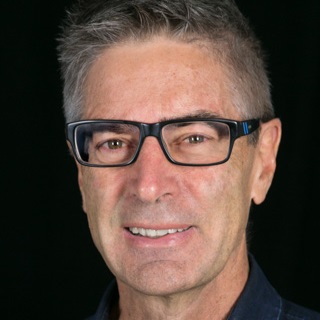 Anthony Dooley took up the position of Head of the School of Mathematical and Physical Sciences at UTS in January 2016, following a period of 4 years as Professor of Mathematics at the University of Bath, UK, where he was Deputy Head of Department and the inaugural Director of the Bath Institute for Mathematical Innovation. Before that, he was Professor of Mathematics at UNSW, where he was Head of School of Mathematic s and Statistics, Chair of the Academic Board and Associate Dean (Strategy).
Anthony Dooley took up the position of Head of the School of Mathematical and Physical Sciences at UTS in January 2016, following a period of 4 years as Professor of Mathematics at the University of Bath, UK, where he was Deputy Head of Department and the inaugural Director of the Bath Institute for Mathematical Innovation. Before that, he was Professor of Mathematics at UNSW, where he was Head of School of Mathematic s and Statistics, Chair of the Academic Board and Associate Dean (Strategy).
His research is in the area of Modern Analysis, including harmonic analysis and dynamical systems. He has published over 90 peer, reviewed articles, held ARC grants continuously for 20 years, and been a Chief Investigator on the ARC Centre of Excellence for Mathematics and Statistics of Complex Systems (MASCOS). He has supervised 18 PhD students to completion, and over 30 honours projects in mathematics.
4:15 - 4:45pm: K-12 Keynote - Making stories out of science: or, how to use Quantum Physics in every classroom - Chris Ferrie
With even Nobel Prize winners the likes of Albert Einstein
complaining about the difficultly in understanding quantum physics, it
certainly seems like an odd choice of topic for a children's book. But
Quantum Physics for Babies is not only a real book, it's a hit! How did
this book come to be and why does it work so well? Along with the trivia
of who, what, where, and when it all came together, I will tell you
about the why and how—my approach to talking about big ideas in maths
and science to children and why it's not much different than my approach
to teaching it to teenagers, or even adults.
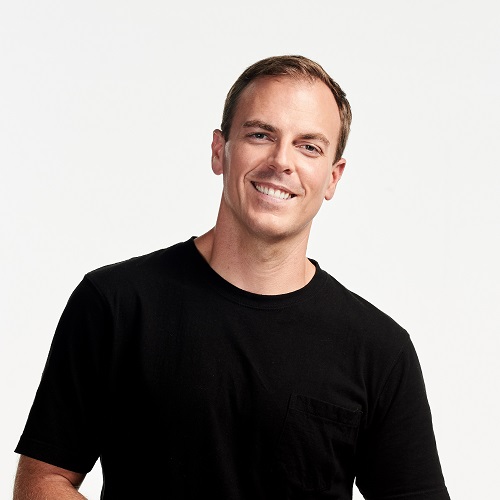 Chris Ferrie is an Associate Professor at the
University of Technology Sydney in Australia, where he researches and
lecturers on quantum physics, computation, and engineering. He is the
author of over 40 children's books about science, including titles such
as Quantum Physics for Babies and There Was A Black Hole That Swallowed
The Universe. As the father of four curious children, he believes it is
never too early to introduce kids to big ideas!
Chris Ferrie is an Associate Professor at the
University of Technology Sydney in Australia, where he researches and
lecturers on quantum physics, computation, and engineering. He is the
author of over 40 children's books about science, including titles such
as Quantum Physics for Babies and There Was A Black Hole That Swallowed
The Universe. As the father of four curious children, he believes it is
never too early to introduce kids to big ideas!
5:00 - 6:00pm: (K-6) Using MakeyMakey to create interactive posters, Martin Levins
Poster sessions are traditional in Science to demonstrate a concept or development. In primary education, we can use them to demonstrate an understanding. Using devices such as MakeyMakey, students can build touch-enabled posters that create interactions using speech, text, and/or animations to show their understanding. This presentation shows you how, what pitfalls exist and how to avoid them.
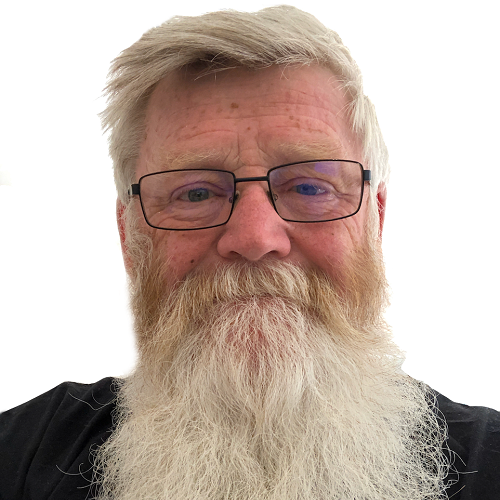 Martin Levins works with ACARA as a Curriculum Officer in the National Innovation and Science Agenda funder Digital technologies in focus project.
Martin Levins works with ACARA as a Curriculum Officer in the National Innovation and Science Agenda funder Digital technologies in focus project.
4:50 - 5:20pm: (7-12) Keynote: Solid State Quantum Photonics - Milos Toth
Solid state quantum photonics is a field of research focused on electronic and photonic circuits that employ individual quanta of light (photons) as a basis for unbreakable cryptography, quantum computing, navigation and metrology. It provides an opportunity to stimulate interest not only in modern physics, but also in related disciplines — such as mathematics, chemistry, materials science, electronics and computer science — and to highlight their relevance to real-world problems facing society today, and exciting future-generation technologies. I will illustrate this by drawing on examples of recent advances in quantum photonics and nanotechnology which are enabling the development of integrated circuits for the generation and manipulation of individual photons.
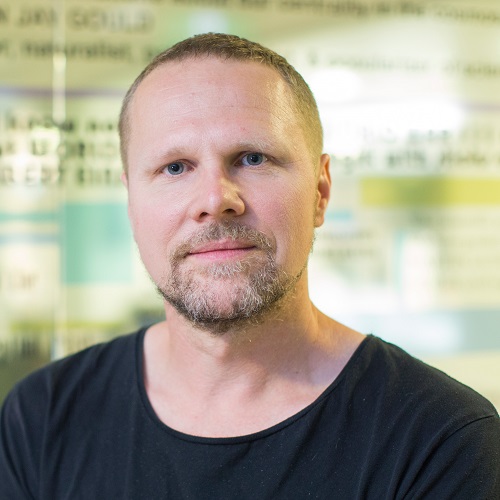 Milos Toth received a PhD in 2001 from University of Technology Sydney (UTS) where he worked on the luminescence properties and defect structure of wide bandgap semiconductors. He subsequently worked as a postdoctoral researcher at Cavendish Laboratory, University of Cambridge, and a research scientist at FEI Company laboratories in Boston, Massachusetts and Portland, Oregon (USA). His work in industry was focused on the development of novel nanofabrication techniques.
Milos Toth received a PhD in 2001 from University of Technology Sydney (UTS) where he worked on the luminescence properties and defect structure of wide bandgap semiconductors. He subsequently worked as a postdoctoral researcher at Cavendish Laboratory, University of Cambridge, and a research scientist at FEI Company laboratories in Boston, Massachusetts and Portland, Oregon (USA). His work in industry was focused on the development of novel nanofabrication techniques.
Milos returned to UTS in 2011 to take up a Professorial Chair, and to set up a research group focused on self-assembly and top-down nanofabrication techniques, and their application to nanophotonics. His current work is focused on 2D materials and wide bandgap hosts of singe photon emitters.
5:30 - 6:00pm:(K-6) Keynote: Astronomy in the Era of Big Data - Tara Murphy
Forget looking through a telescope at the stars. An astronomer today is more likely to be online: digitally scheduling observations, running them remotely on a telescope in the desert, and downloading the results for analysis. The Square Kilometre Array, a next generation radio telescope that will be built in Australia, is expected to generate a petabyte of data per night. The detection of gravitational waves, discovery of new exoplanets and understanding the evolution of our Universe all depend on big data.
For many astronomers the first step in doing science is exploring this data computationally. It may sound like a buzzword, but data-driven science is part of a profound shift in fields like astronomy. To prepare the next generation, we must develop new teaching methods that recognise data-driven and computational approaches as some of the primary tools of contemporary research.
In this talk I will discuss how the big discoveries in astronomy, and science more generally, are dependent on our ability to work with and understand big data, and how we can incorporate data-driven approaches in school and university science education.
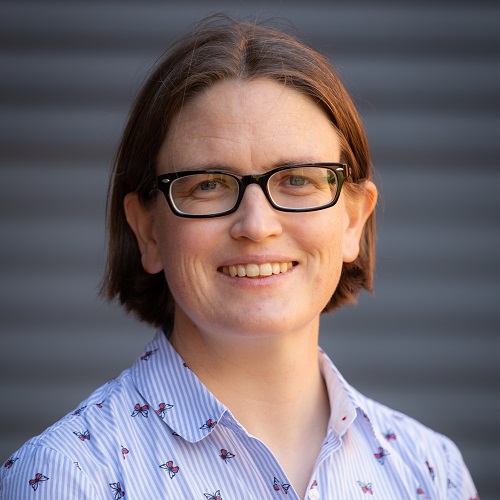 Professor Tara Murphy is an astrophysicist working at the University of Sydney and an Australian Research Council Future Fellow. She has a Bachelor of Science from the University of Sydney and a PhD in astrophysics from the University of Edinburgh. Tara leads an international team of researchers trying to detect and study transient and highly variable astrophysical phenomena with the ASKAP radio telescopes in Western Australia. In 2017 her team detected the first radio emission from a gravitational wave event caused by the merger of two neutron stars. Tara is also passionate about teaching and public outreach. In 2014 she co-founded a start-up company, Grok Learning, to get high school students around the world excited about computational thinking.
Professor Tara Murphy is an astrophysicist working at the University of Sydney and an Australian Research Council Future Fellow. She has a Bachelor of Science from the University of Sydney and a PhD in astrophysics from the University of Edinburgh. Tara leads an international team of researchers trying to detect and study transient and highly variable astrophysical phenomena with the ASKAP radio telescopes in Western Australia. In 2017 her team detected the first radio emission from a gravitational wave event caused by the merger of two neutron stars. Tara is also passionate about teaching and public outreach. In 2014 she co-founded a start-up company, Grok Learning, to get high school students around the world excited about computational thinking.